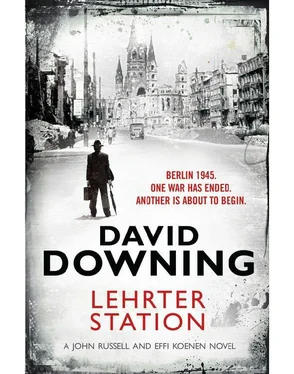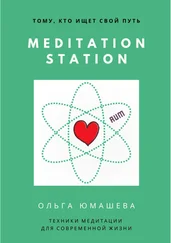David Downing - Lehrter Station
Здесь есть возможность читать онлайн «David Downing - Lehrter Station» весь текст электронной книги совершенно бесплатно (целиком полную версию без сокращений). В некоторых случаях можно слушать аудио, скачать через торрент в формате fb2 и присутствует краткое содержание. Жанр: Шпионский детектив, на английском языке. Описание произведения, (предисловие) а так же отзывы посетителей доступны на портале библиотеки ЛибКат.
- Название:Lehrter Station
- Автор:
- Жанр:
- Год:неизвестен
- ISBN:нет данных
- Рейтинг книги:5 / 5. Голосов: 1
-
Избранное:Добавить в избранное
- Отзывы:
-
Ваша оценка:
- 100
- 1
- 2
- 3
- 4
- 5
Lehrter Station: краткое содержание, описание и аннотация
Предлагаем к чтению аннотацию, описание, краткое содержание или предисловие (зависит от того, что написал сам автор книги «Lehrter Station»). Если вы не нашли необходимую информацию о книге — напишите в комментариях, мы постараемся отыскать её.
Lehrter Station — читать онлайн бесплатно полную книгу (весь текст) целиком
Ниже представлен текст книги, разбитый по страницам. Система сохранения места последней прочитанной страницы, позволяет с удобством читать онлайн бесплатно книгу «Lehrter Station», без необходимости каждый раз заново искать на чём Вы остановились. Поставьте закладку, и сможете в любой момент перейти на страницу, на которой закончили чтение.
Интервал:
Закладка:
In the morning she walked Rosa to school for the last time. When they said their goodbyes the girl seemed determined not to cry, but Effi’s tears broke down her resistance. Walking back to the flat alone, Effi couldn’t remember when she’d last felt so wretched.
An hour or so later, she and Russell climbed into a taxi and waved goodbye to Zarah. Sitting in the back, they watched London slide by, all the drab buildings and overgrown bombsites, faces still etched by the hardship of war. Berlin, they knew, would be a hundred times worse.
Their boat train left on time, rattling out across the dark grey Thames, and over the long brick viaducts beyond. They might be going home, but they were not returning to anything familiar, and as the misty English countryside slipped past, Russell was assailed by the feeling that, for all their careful calculation, they were simply walking off a cliff, in the hope that some unknown net would catch them.
David Downing
Lehrter Station
Death of a swan
T hat afternoon the Channel was cold and grey, a bitter northerly wind driving everyone off the decks and into the overcrowded seating areas. The passengers were overwhelmingly male, some in uniform, rather more bound for Germany in the civilian dress of an increasingly post-military occupation. Listening to the young soldiers’ banter, Russell was reminded of similar voyages in the years of the First War, and experienced what was, for him, a rare awareness of being English. He hadn’t felt at home in London, and despite all the apprehension and uncertainty surrounding their German future, he still found it hard to regret their departure.
Beside him on the crowded bench, Effi also had mixed feelings. Though still not convinced that she’d been right to leave Rosa behind, she couldn’t escape a sense of satisfaction at the prospect of returning home, even if Berlin was largely in ruins. And, almost despite herself, she felt excited at the prospect of working again. A life spent acting was something she’d taken for granted until 1941, and she had missed it much more than she expected.
Night had fallen by the time they reached Ostend, and their American-supplied papers saw them almost whisked through the entry procedures. Someone at the US Embassy in London had decided that a fictional marriage was the simplest option, and Effi was now travelling as Mrs Russell, with her own American passport. She had initially objected — ‘I’m a German,’ she had told Russell indignantly. ‘Of course you are,’ he had told her with a smile, relieved that she’d been given the potential protection. ‘Someone else’s piece of paper is not going to change that, is it? Think of it as a part, and the passport as a prop.’
Now, seeing the problems that other returning Germans were having, she had to admit the practicality of the arrangement. But she still meant to get a new German passport at the earliest opportunity. The old one had been left in the Carmerstrasse flat when they both fled Berlin in December 1941, and had presumably been scooped up by the Gestapo. If the stories in the British papers could be believed, it had probably been put to use by some fleeing Nazi’s wife or mistress.
Their train was waiting on the other side of the arrivals shed, a long line of wagons-lit which had somehow survived the ravages of the last few years. A two-berth compartment was better than Russell had expected, but the bedding was sparse and there was, as yet, no heating. He tried closing the door, and found it almost cut out the noise of the soldiers in the next carriage. ‘We might even get some sleep,’ he muttered.
‘It’s scary, isn’t it?’ Effi said.
‘What is?’
‘We’re going back but we’re not really going home. When people say they’re going home they usually mean they’re going back to the familiar, the known, and we’re not doing that, are we? We have no idea what we’re letting ourselves in for.’
‘We have some idea. We’re going back to a city in ruins, and we know it’ll be difficult. But we have food and shelter guaranteed, and you have a movie to make. If that falls through, you can always go back to London.’
‘And leave you in Berlin.’
‘I’ll fix it so I get back to London on a regular basis. I can always offer to spy on the English as well.’
‘John!’
‘I know. This is not good. But we’ll get through it somehow. We were in a much worse situation than this four years ago.’
‘That’s not saying much.’
‘True, but we’ll think of something.’ He gave her what he hoped was an encouraging smile.
‘I know the flat was crowded, but I loved having everyone around — the children and Zarah and Paul. Didn’t you?’
‘I did, most of the time.’
‘I want a big house in Berlin. Not now, of course, but eventually. Like Thomas’s, with lots of bedrooms and a big garden.’
‘That would be good,’ he agreed, though how they would ever afford one was something else again. He doubted whether double agents and actresses approaching forty were paid that much.
The carriage seemed to be heating up, which suggested an attached locomotive. Russell stepped down onto the platform for a better view, and was promptly told to get back aboard — they were leaving.
The train picked its way through the sparsely lit town and out onto the darkened Flanders plain. Russell waited for it to gather speed, but twenty-five miles an hour seemed the limit of the driver’s ambition. They took to their respective bunks, and Effi was soon sleeping soundly, despite noisy stops in Bruges and Brussels. Russell lay there feeling every kink in the war-worn tracks, and woke with surprise to find light shining through the crack in the curtains.
He climbed down as quietly as he could, and slipped out into the corridor just as the train rattled its way through a succession of points. Through the window he saw gutted buildings stretching into the distance, row upon serrated row. And then, as the train began to slow, Cologne Cathedral loomed above him, barely touched by the calamity which had engulfed the surrounding city. ‘There must be a God,’ he murmured to himself.
‘There must,’ Effi agreed, appearing beside him and taking his arm. In such a sea of debris the cathedral’s survival had all the appearance of a miracle.
In a cleared space beside it, people were laying out items for sale on sheets and blankets. There were household objects of all kinds, and Russell thought he detected the glint of cameras, but there was no sign of food.
The railway bridge across the Rhine was still under reconstruction, and the train could go no further. They joined the scrum on the platform, and followed signs to the pontoon bridge for motor traffic and pedestrians. There was little of the former — only a couple of British Army jeeps — but steady streams of the latter were moving in both directions. A cold wind from the north was rippling the water and the Union Jacks that adorned each bank. The wide river was empty of shipping, and the broken skyline of the city behind them made it hard to believe that hundreds of thousands still called it home.
The morning’s journey did nothing to raise their spirits. Town after town seemed sunk in post-war gloom, many with the same desperate outdoor market, hordes of people glancing glumly up at the passing train as they sought to barter their way out of hunger and cold. The chimneys that were issuing smoke were vastly outnumbered by those that were not.
They reached Frankfurt early in the afternoon, and eventually tracked down the station’s US Army office. A Colonel Merritt should have been waiting for them, but all they found was a captain. The Soviets had been causing trouble, Merritt had been called away, and a Colonel Dallin would now conduct the briefing in Berlin. Russell groaned inwardly — he had known and disliked Dallin during the war, when the Californian had been attached to the American Embassy.
Читать дальшеИнтервал:
Закладка:
Похожие книги на «Lehrter Station»
Представляем Вашему вниманию похожие книги на «Lehrter Station» списком для выбора. Мы отобрали схожую по названию и смыслу литературу в надежде предоставить читателям больше вариантов отыскать новые, интересные, ещё непрочитанные произведения.
Обсуждение, отзывы о книге «Lehrter Station» и просто собственные мнения читателей. Оставьте ваши комментарии, напишите, что Вы думаете о произведении, его смысле или главных героях. Укажите что конкретно понравилось, а что нет, и почему Вы так считаете.












